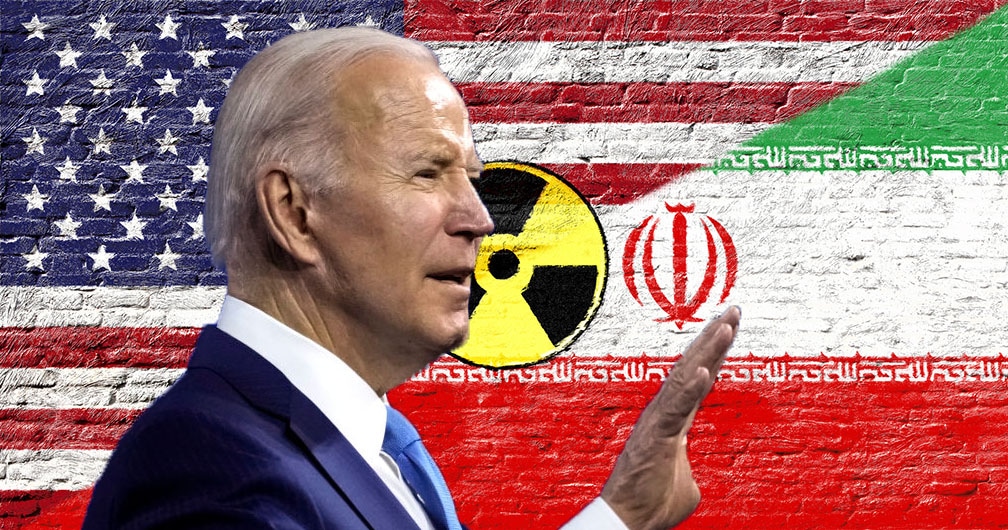 Drew Angerer/Getty Images; liorpt/Getty Images
Drew Angerer/Getty Images; liorpt/Getty Images Is it possible that the United States wants a nuclear deal more than Iran? And if so, at what cost?
For several months now, the Iranians have alternated between boycotting negotiations altogether and returning to the table with demands that have already been rejected. (Meanwhile, their scientists continue to steadily progress toward full nuclear capacity.) While the Europeans and Americans search for possible reasons for optimism – whether they actually exist or not – Israel, Saudi Arabia and many other countries in the Middle East offer ongoing warnings about the hazards of an actual deal.
This has been the fairly constant state of play ever since Joe Biden took office, but a new and even more dangerous dynamic has emerged since the Russian invasion of Ukraine several months ago. As the international embargo against Russia strengthens and begins to undermine the military capabilities of Vladmir Putin’s armed forces, it appears that Russia has begun using large numbers of Iranian-made suicide drones on the battlefield.
Even countries like China and India, which have continued to purchase large amounts of Russian oil to keep that country’s economy solvent, are refusing to supply Putin with the weapons he requires to fully wage war against the unexpectedly strong resistance that the Ukrainians have provided. Russia desperately needs a reliable source for arms, and the mullahs who rule Iran have been more than happy to help.
From the very beginning, Western negotiators have agreed to separate talks about Iran’s nuclear capacity from the wide range of ballistic weapons, terrorism and other aggression that the country employs against its enemies. This leads to awkward and embarrassing situations where American diplomats are offering encouraging news of progress at the same time that U.S. troops and those of its allies are forced to defend themselves against Iran’s military. The counter-argument that the negotiation’s defenders offer is that Iran will never cease their non-nuclear attacks and that stopping their development of atomic weapons is of such import that the other goals must wait.
That was a difficult argument to sustain even before the Russia-Ukraine war. But now that defeating Putin has appropriately become the most important Western security objective, the spectacle of Iran supplying Russia with armaments makes the logic of separating Iran’s various types of belligerence even less defensible. If stopping Putin is our most important goal, then it’s reasonable to ask why are we negotiating with his key arms suppliers – and making no real effort to convince them to stop aiding the Russian war machine.
Iran’s representatives have returned to the nuclear talks with demands that the U.S. and its allies have long since declared unacceptable.
In the meantime, Iran’s representatives have returned to the nuclear talks with demands that the U.S. and its allies have long since declared unacceptable. This summer, the Iranians grudgingly gave in to Western insistence that their Islamic Revolutionary Guard would not be removed from American terrorist blacklists that heavily sanction their members’ activities. But now, the Iranians have resurrected a long-dismissed condition that the U.S. remain committed to an agreement even under a new presidential administration. For years, Western diplomats have tried to explain that voters in a democracy are empowered to elect representatives who may reflect a different approach than their predecessors. But the Iranians remain deliberately oblivious to the concept and have repeatedly used this tactic as an effective way of delaying any meaningful progress.
Iran has also returned to their long-held ultimatum that an ongoing United Nations investigation of their undeclared nuclear activity (in other words, identifying their previous violations of the original agreement) be shut down before a new deal is implemented. Western diplomats continue to press forward in the face of such stalling tactics — even while Iran provides weaponry to Russia’s military forces and prolongs the war in Ukraine.
Of even greater concern is that Iran has also engaged in joint military exercises with both Russian and China’s armed forces, indicating that this joint geopolitical challenge will get worse before it gets better. The U.S. has become increasingly confrontational in language and action toward both of those other countries. It’s worth asking what Iran’s leaders would have to do for a similarly confrontational approach to be employed against them.
Dan Schnur is a Professor at the University of California – Berkeley, USC and Pepperdine. Join Dan for his weekly webinar “Politics in the Time of Coronavirus” (www/lawac.org) on Tuesdays at 5 PM.























 More news and opinions than at a Shabbat dinner, right in your inbox.
More news and opinions than at a Shabbat dinner, right in your inbox.